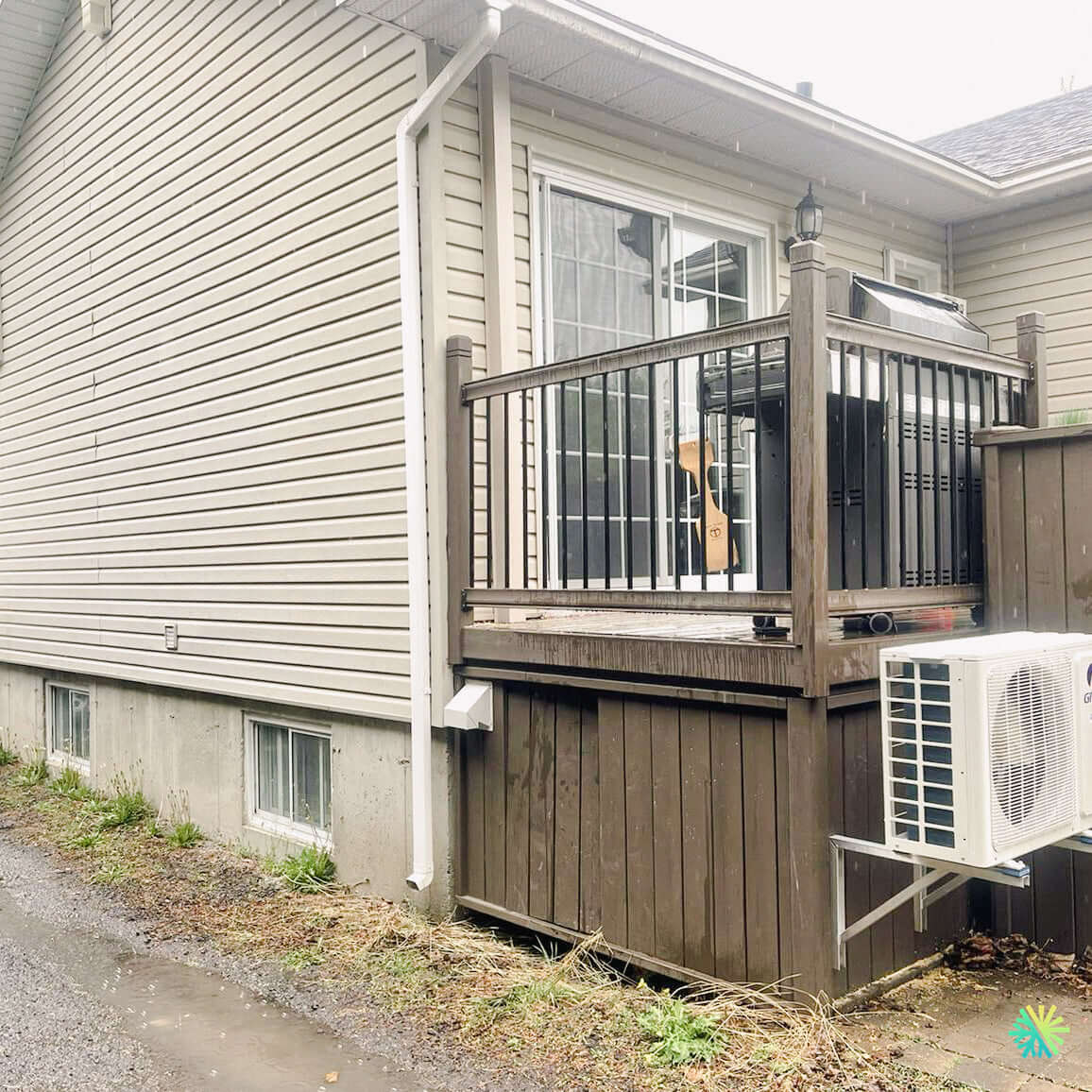Introduction to the comparison between multizone heat pumps and oil boilers in Montreal
Optimizing energy efficiency and reducing heating costs are priorities for many homeowners in Montreal, Laval, Longueuil, and the North and South Shores. When it comes to choosing the right heating system for your needs, there are several options, including the multizone heat pump and the oil boiler. Each of these technologies offers distinct advantages and disadvantages that need to be understood. In this article, we will explore the differences between these two systems through a real-world comparative study, highlighting the benefits of each solution in the specific context of the Montreal area.
What is a multizone heat pump?
A multizone heat pump is an innovative heating and cooling system that allows you to control the temperature in multiple distinct areas of the same building. This system uses a single outdoor unit to distribute hot or cold air to different rooms, thanks to indoor units that can be installed in each space. For instance, a very popular model is the Fujitsu KZAH R-32 multizone heat pump, a high-performance solution that offers cutting-edge energy management while ensuring optimal comfort.
Advantages of the multizone heat pump
-
Energy efficiency: The heat pump uses energy from the outside air to heat or cool the inside, resulting in a significant reduction in energy costs compared to traditional heating systems like the oil boiler.
-
Personalized comfort: With a multizone system, each room can be regulated independently, allowing it to meet the specific needs of the occupants in different areas of the home or building.
-
Less maintenance: Unlike a boiler, which requires regular maintenance for the burner and combustion system, the heat pump needs much less upkeep, reducing long-term maintenance costs.
-
Reduced environmental impact: The heat pump, particularly the Fujitsu KZAH R-32 model, uses environmentally friendly refrigerants, helping to reduce your carbon footprint—a key benefit in the context of the energy transition in Montreal.
How an oil boiler works
The oil boiler, an older technology, relies on the combustion of oil to produce heat. This system is commonly used in older homes or in areas where other energy sources are unavailable or considered impractical.
Disadvantages of the oil boiler
-
High energy consumption: Oil boilers consume large amounts of energy to generate heat. Compared to a heat pump, the boiler is generally less efficient and more expensive to use over a prolonged period.
-
Frequent maintenance: Boilers require regular inspections, including cleaning filters, checking oil levels, and ensuring the system is operating correctly. These maintenance tasks can become costly over time.
-
Greenhouse gas emissions: Oil boilers generate CO2 emissions, which contribute to climate change. Due to this combustion, this system is less environmentally friendly than modern solutions like heat pumps.
-
Dependence on oil prices: The price of oil can fluctuate significantly, which may lead to unpredictable heating costs. This can be problematic for homeowners seeking to maintain stable cost management.
Comparison of installation and operating costs
Installation cost
The installation cost of a multizone heat pump is typically higher than that of an oil boiler. This is due to the complexity of the system, which requires additional indoor units for each zone, as well as an outdoor unit for air processing. However, this cost can be offset by the savings on energy bills over time.
In comparison, an oil boiler has a lower installation cost, but this can be misleading as maintenance and energy consumption costs are much higher over the years.
Operating cost
In Montreal and its surrounding areas, the cost of electricity is relatively stable compared to oil, whose prices can fluctuate. Moreover, the multizone heat pump offers higher energy efficiency, which reduces the energy consumption for each unit of heat produced. For long-term residential use, this efficiency could lead to substantial savings, particularly with models like the Fujitsu KZAH R-32.
On the other hand, while oil may be cheaper upfront, its operating costs can increase significantly over time. With oil price fluctuations and the high consumption of the system, expenses may surpass those of a multizone heat pump after a few years.
Real case study: installation of a multizone heat pump in Montreal
At AirGreen, we recently completed the installation of a Fujitsu KZAH R-32 multizone heat pump in a two-story home in Montreal. The goal was to replace an old, outdated oil heating system. The client wanted a more economical and environmentally friendly solution. We considered the specifics of the building and recommended a multizone system to ensure optimal comfort in each room.
The installation went smoothly, despite the complex configuration of pipes and wiring in the building. The result was improved energy performance and significant savings on energy bills, all while reducing the household's carbon footprint.
Conclusion: Which option should you choose for your home in Montreal?
Choosing between a multizone heat pump and an oil boiler depends on several factors, including the initial budget, long-term goals, and environmental impact. If you’re looking for an efficient, eco-friendly solution with low operating costs, the multizone heat pump is an excellent choice. It’s ideal for those who want personalized comfort in different areas of their home while reducing their ecological footprint.
However, for older homes or those without an appropriate electrical setup, the oil boiler remains a viable option, although it is less cost-effective in the long run.
At AirGreen, we help you make the best decision for your home in Montreal and its surrounding areas, offering solutions tailored to your specific needs.

